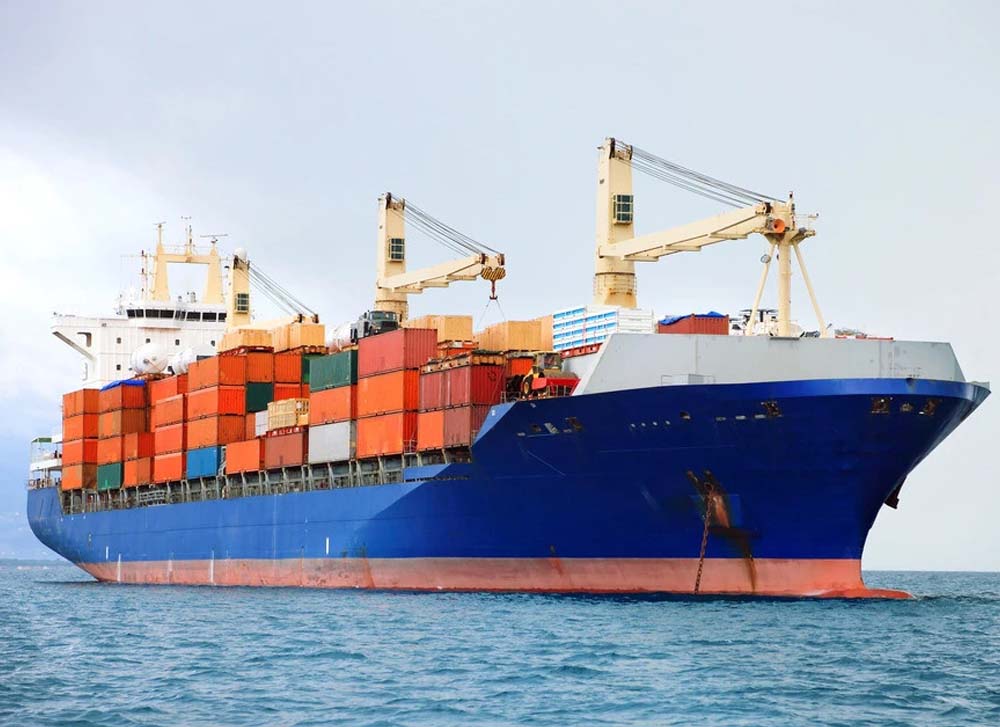Jan 03, 2025
In the modern maritime industry, the integration of advanced technologies and automation is becoming increasingly prevalent, significantly improving the efficiency and safety of operations.
Pneumatic cylinders, known for their reliability, durability, and efficiency, play a key role in various maritime applications, from vessel operations to port management.
This article explores the main applications of pneumatic cylinders in the maritime industry and the advantages they bring.

The steering gear is a crucial component for controlling the direction of a vessel. Traditional mechanical systems are being replaced by modern hydraulic or pneumatic steering gear systems.
Pneumatic cylinders are widely used in these steering systems to transmit power efficiently, ensuring precise control of the rudder.
Pneumatic systems not only reduce the workload of operators but also provide greater power output in compact spaces, enhancing the responsiveness and stability of the steering mechanism.
Container stacker cranes are essential for loading and unloading containers at modern ports. Pneumatic cylinders are extensively used in the lifting, rotating, and sliding operations of these cranes.
They provide fast, stable power, enabling the cranes to position and move containers with high precision.
The quick response time and simple maintenance of pneumatic cylinders significantly improve the efficiency of container handling, boosting port productivity.
Cargo hatch covers are vital for ensuring the safety of cargo during transport. Pneumatic cylinders are employed in the operation of cargo hatch covers, offering powerful driving forces to open and close the covers swiftly.
Compared to traditional electric or hydraulic systems, pneumatic systems have greater resilience, making them more suitable for harsh marine environments with high humidity, saltwater exposure, and extreme temperatures.
This durability extends the lifespan of the equipment.
Ships often accumulate water in their hulls during voyages, which needs to be quickly and efficiently removed to ensure the vessel’s stability.
Pneumatic cylinders are used in bilge water pumping systems to facilitate rapid water expulsion.
Pneumatic systems are ideal for this application because they can maintain high efficiency even in extreme conditions, helping to maintain the vessel's stability and safety during its journey.
During maritime transport, cargo must be securely fastened to prevent shifting that could endanger both the vessel and the cargo.
Pneumatic cylinders are used in cargo securing systems to adjust and apply the appropriate tension on cargo securing devices.
These cylinders provide precise control over the securing process, ensuring that cargo is firmly held in place throughout the journey.
The reliability and quick response of pneumatic cylinders are especially beneficial in maintaining cargo safety.
Deck machinery, such as winches, capstans, and cranes, is essential for various shipboard operations, including mooring, anchoring, and handling cargo.
Pneumatic cylinders are used to drive these machines, providing the necessary force for lifting, pulling, and pushing operations.
The use of pneumatic systems ensures smooth and efficient operation, reducing the physical effort required by the crew and enhancing overall safety on deck.
As automation in the maritime industry grows, pneumatic cylinders are increasingly incorporated into various control systems on ships.
Pneumatic actuators are used in automated systems for tasks such as cargo handling, ballast management, and even environmental control.
The use of pneumatic cylinders in these applications improves accuracy, reliability, and speed, which are critical for modern maritime operations.
Pneumatic cylinders offer several distinct advantages that make them especially suited for maritime applications. These include:
Pneumatic cylinders are designed to operate in extreme conditions, including high humidity, saltwater exposure, and fluctuating temperatures.
This resilience ensures that pneumatic systems remain reliable over long periods, even in the challenging marine environment.
Unlike electrical systems that may suffer from corrosion or mechanical systems that require extensive maintenance, pneumatic cylinders require less upkeep and offer enhanced longevity.
Pneumatic systems are known for their quick response times, making them ideal for applications that require rapid movement or adjustments.
Whether it’s controlling the steering of a ship or positioning heavy containers, pneumatic cylinders provide the precision necessary for high-speed, accurate operations.
This speed and precision enhance overall efficiency and reduce downtime.
Pneumatic cylinders are relatively lightweight and compact compared to hydraulic systems, making them easier to install and integrate into various shipboard applications.
Their space-saving design is particularly beneficial in the confined spaces often found on vessels, where efficient use of space is critical.
Pneumatic systems generally require less maintenance than hydraulic or electrical systems.
The simplicity of pneumatic cylinders reduces the likelihood of mechanical failures, and their components are easy to replace or service.
As a result, the overall operational costs for vessels equipped with pneumatic systems are lower, helping ship owners and operators save on maintenance and repair expenses.
Pneumatic cylinders are energy-efficient, as they typically use compressed air, which is readily available on most ships.
The use of compressed air allows for more sustainable operations, reducing the need for additional power sources.
This efficiency contributes to overall cost savings and makes pneumatic systems more environmentally friendly.
Pneumatic cylinders are inherently safer than hydraulic systems because they operate with air, which is non-flammable and poses fewer risks in the event of a leak or failure.
Additionally, pneumatic systems are less likely to experience pressure fluctuations or sudden failures, offering greater operational reliability and enhancing safety on board.
Pneumatic cylinders have become indispensable in the maritime industry due to their efficiency, reliability, and adaptability.
From steering systems to cargo handling, these cylinders provide significant advantages in terms of performance, durability, and ease of maintenance.
Their ability to thrive in harsh conditions, respond quickly, and offer low-cost, energy-efficient solutions makes them an ideal choice for maritime applications.
As the maritime industry continues to evolve with more automation and advanced technologies,
pneumatic cylinders will play an even greater role in optimizing operations and ensuring the safe and efficient movement of goods across the world’s oceans.
For more information on pneumatic cylinders and their applications in the maritime industry, please contact Fokca, a trusted manufacturer providing high-quality pneumatic solutions tailored to your specific needs.
You May Interest In
FOKCA ©1998-2025 Fescolo Pneumatic All Rights Reserved Sitemap